#zeb un nisa
Explore tagged Tumblr posts
Text

daughters of the sun - ira mukhoty
most of the women of the mughal haraman were, in fact, not wives at all; they were mothers, like hamida banu and harkha bai, unmarried sisters, like jahanara and roshanara, divorced women, like khanzada, single daughters, like zeb-un-nisa and zeenat-un-nisa, aunts, like gulbadan, distant relatives, like salima sultan, elderly dependents, etc. they were not sexually available women at all. and yet they all had a role to play, a duty to perform, and they were respected, and paid, for these crucial jobs.
who were the mughal women behind the veil of the zenana? hidden behind the purdah, little historical accounts were recorded of the ongoings within the harem, and those that were are steeped in orientalism, western curiosity (and ethnocentricism alike) sprouting ideas of languor, lasciviousness, blouseless indian women waiting in their haveli for their shahenshah to visit them. such a lack of probing into the real story led to a disappointing overshadowing of the role played by the harem in the empire. but ira mukhoty casts this shadow away, shining the light of her in depth research and impeccable narrative to delve into the lives of some of the most influential women the world has seen.
mukhoty takes her readers through each reign of the mughal emperors, from babur's escape from samarkand to aurangzeb's mammoth of expanded territory. we hear of khanzada begum, babur's eldest sister, surrendered to shaybani khan and separated from her timurid family for almost a decade; gulbadan begum, who authored the famous humayunama, the biography of her father; nur jahan, the chief consort who had coins struck in her name, who was short of only being announced in the khutba from being the padshah herself; and jahanara begum, the daughter of shah jahan, who went from her glorious reign as padshah begum to her imprisonment in agra fort with her ailing father as her brother took the throne. interspersed are the stories of other, lesser known women of the harem -- wet nurses such as maham anaga; second, third, and fourth wives; and sisters and daughters that fall back to the sidelines. most beautifully of all, mukhoty weaves this all into a complex tapestry of female power, ambition, companionship, and spirituality, displaying in rich hues the kaleidoscope of lives suffusing the mughal harem.
after four-hundred years, the curtain of the zenana is finally pulled back -- along with the misconceptions colouring a vital chapter of female history.
#mughals#mughal empire#mughal history#history#book review#book recommendations#bookblr#historyblr#history blog#book blog#i love this painting btw#noor jahan#jahanara begum#tagged:history#tagged:mughals#tagged:bookreview#♡alizeh reads♡#tagged:daughtersofthesun#tagged:iramukhoty
14 notes
·
View notes
Text
“That Mughal women wrote quite extensively is remarkable and their works, wherever available, are extraordinary. Other Mughal women apart from Gulbadan left writings. Jahanara wrote two Sufi treatises as well as poetry. She corresponded extensively, not only with kings wanting her patronage but also with her brothers, Aurangzeb and Dara Shikoh, and she became the vortex of the succession struggle between the two princes, both brothers seeking her support. Many of the women, including Aurangzeb’s daughter Zeb-un-Nisa, wrote poetry. The women wrote farmans, or orders, and had seals in their names, which can be as eloquent as an entire biography. Noor Jahan’s seal reads ‘By the light of the sun of the emperor Jahangir, the bezel of the seal of Noor Jahan, the Empress of the age has become resplendent like the moon��—this is surely as powerful a testimony to her own ambition and glory than any biographer’s praise.”
— Ira Mukhoty, Daughters of the Sun: Empresses, Queens and Begums of the Mughal Empire
#history#historicwomendaily#indian history#mughal empire#mughal era#Jahanara Begum#Gulbadan Begum#Noor Jahan#Zeb-un-Nissa#mine#queue
51 notes
·
View notes
Text
"Music and Songs" Short Story by Babrak Arghand

"Music and Songs" Short Story by Babrak Arghand
Translated from the Farsi by Farhad Azad
AftaabMag.com | Spring 2024
The narrow, dusty alley of Kharabat exhaled loneliness, and a solitary lamp at the end of the alley flickered with a faint light here and there.
As I reached Saber's house, I stopped. It was as if my body grew numb and lifeless, and my feet lost their will to move. Time ceased its flow, the earth no longer spun on its axis, and the stars were absent from their reflection in the crystal spheres. Only the sound of mystifying music rippled through the air, and the fragmented cries of a santoor poured out into the alley through the cracks and crevices of the window.
I looked up. A dim glow illuminated Saber's upper room, and the shadow of a hunched man fell upon the white curtain of the window, swaying left and right with the instrument's melodies.
I thought, "Poor soul, it seems he's still sleepless..."
And I nudged the doorstep with the tip of my foot. The sound of the music rose louder. The plectrum struck the strings with greater intensity, and the cries arose more painful and melancholic.
In the courtyard, the rain fell drop by drop, the earth exhaled the scent of damp soil with sorrow, and the poplar tree stood guard by the well like a sentinel, as in the past. A faint light from the lamp at the end of the corridor glimmered weakly beneath the mulberry leaves, and a deceived, nocturnal butterfly wearily circled around it.
The courtyard was small and square. It smelled of dirt, dead leaves, and music. A small drum rested its cracked head against the brick wall of the well, and a small puddle had formed in front of it. The sound of laughter came from afar, a weak and painful laughter. I thought to myself, "They're intoxicated again."
I had known that courtyard for years. I knew Zeib Al-Nasa, Nowruz, and their son Saber. I knew of his love story and infatuation with Roushanak—he had told me his accounts of Roushanak. I also recognized that laughter, and now weakly echoed for years as time passed. Sometimes, I thought that laughter flared into the air every night, its scattered fragments spreading throughout Kharabat.
I slowly entered the room. The room was cold and reeked of sorrow mixed with saffron, death, and loneliness. A lantern burned restlessly at the top of the arch, flickering as if exhaling its last breaths, a halo of darkness coiled around its jug-like neck.
The smell of death emerged from its burning. Further away, a basil plant had withered in a pot, and the wind gently swayed an empty, broken picture frame on the window sill like a pendulum. The walls of the room offered a heart-wrenching sight, riddled with holes, and everywhere, memories of grief and pain were painted as if a mad lover and songwriter had moved out of there. I could hear the echo of his voice, still reverberating with woe and pain:
"In death, I'll carry your love's scar, a burden unseen, Yet, I yearn for my darling's embrace, a fleeting dream."
Someone whispered in my ear, "Do you hear? This is his voice. It's Saber's voice. The voice indeed stays!"
And right there, at the entrance, I sat down. The echo still painfully twisted and turned in the room. Astonished, I saw that life had returned to that home with all its hustle and bustle, and music and sound once again filled the room.
I saw Saber, his santoor resting on his knees, his head bowed, frantically plucking at its strings like a madman. The cries and shouts of his santoor arose in a clamor, striking the doors and walls, shaking the withered basil plant, and violently clanging the empty, broken picture frame on the window sill.
I saw Zeb-un-Nisa wrap her shawl around her neck, place her water pipe before her, and take a deep drag. A moment later, a column of smoke from the burnt tobacco emerged from her mouth, momentarily obscuring her wrinkled face. Beyond that smoke...
She said to her son, "Look at your face. Your color has become like the flame of a lamp. What have these three years of prison done to you?"
And she added, grumbling, "What does this Roushanak have that has stolen your heart? I wish I hadn't let you go to their house that first day..."
Her voice dissolved in the grayish smoke of the water pipe. I didn't hear what else she said. But then she raised her voice, "I told you from the first day look at our station and their station. Where are we, and where are they? We are from Kharabat, and they are..."
She raised her voice even louder, "One day, their servant didn't open the door for us. He sounded, 'They will not give their daughter to a musician. The lady of the house said to tell you to cut their coat according to their cloth...'"
And after a pause, she said, "Saber!... It's good you didn't listen to Roushanak; it's good you didn't run away with her!"
Upon hearing Roushanak's name, I saw the cries of the santoor evolve louder, more painful, and more hopeless. Zeb-un-Nisa added, "They wouldn't say anything bad about Roushanak. After all, she is the apple of their eye, but they would have skinned you alive!... Let my words turn to ashes. They would have killed you!"
I saw the santoor fall silent. Saber lifted his head. His complexion was a shade of yellow. Two tears had gathered in his eyes. His face was handsome and charming. He had powerful eyes and eyebrows. In a sweet but sorrowful voice, he replied, "I wish I had listened to her... When they didn't allow the wedding, I wish we had both run away!"
And he moistened his dry, parched lips with his tongue, "I wish I hadn't broken bread with them...after all, they had the right of a student over me...I wish their hospitality hadn't blinded me..."
Zeb-un-Nisa wiped the mouthpiece of her water pipe with the palm of her hand: "They didn't have the right of a teacher over you. You had the right of a master! Those ungrateful people achieved their intent, and that was it... All they learned from you was singing and reciting. What else did you have to offer them? What else would they do with you? You were naive, that's all!"
And she let out a series of coughs: "If you had listened to me, we wouldn't be in this shape."
And she brought the water pipe to her mouth again: "The earring wasn't worth hanging for. Didn't I tell you?... They imprisoned you and forcefully married off their daughter... For God's sake, three years of hard labor, all for a girl! Roushanak wasn't a shining beacon, she was a scorching flame, a scorching flame!"
And she murmured painfully under her breath, "I don't know what sin my son committed, falling in love is no sin."
Saber bit his lip and stared at the mother-of-pearl diamonds of his santoor. The lantern glow reflected in the pearly shapes of the instrument. Suddenly, he saw Roushanak in the diamonds on the edge of his santoor, twirling and twirling in a wide skirt, just like in the old days, dancing and dancing to the music of the santoor. Like the branches of a spring willow, her hands and feet joyfully twisted and turned and curved this way and that.
Saber thought, "I know that God created these flowers imitating Roushanak's beautiful face. I know that these shining stars are Roushanak's tears, shed upon the darkness of this world. I know that the winds blow to caress her hair. If she were not here, there would be no world, no tolerance."
And he pressed his lips under his teeth: "The pain of prison seared my bones, but I didn't die. But without Roushanak, I will die. Roushanak has no life without me, either. I can smell the touch of death. I see it hovering a few steps away from me. I see that death is to an instrument, a song, a strange melody sung by a poor traveler in a vast desert, with passion, blazing."
I saw Zeb-un-Nisa rise from her place. She stood in the middle of the room. She seemed lovely and graceful. She had a peculiar resemblance to Roushanak. Her stature was like a tall cypress tree. She had captivating black eyes and eyebrows. She stepped through the smoke. I saw her loosen the knot of her green shawl, bobbing her black, curly hair onto her shoulders. She secured a scarf around her waist and tested the strap of the bells on her feet.
A bitter smile appeared on Saber's lips, and his unwell eyes lit up with laughter. With his white, thin hand, full of turquoise-colored veins, he excitedly squeezed his santoor, and his fingers magically hovered over the strings of the instrument. And the room was once again consumed with music.
Suddenly, I saw the door in front of me flung open with a loud bang. I heard the sound of its hinges hitting the walls.
In the doorway frame, a square, dark figure appeared like a black hole, pulling the swirling, blue smoke of the water pipe towards itself with an unnatural force.
I saw familiar and unfamiliar faces appear in the doorway. Each face carried an instrument or a song. Then, I saw a sound like a roaring river surging into the room.
The sound held significant meanings, with a surge shimmering in every wave, every twist and turn. It was as if the particles of sound were expanding in the space, making the room tighter and tighter.
The sound couldn't fit in the room as the walls began to recede and the ceiling moved further away. I feared the expanding sounds, worried that Saber's upper chamber might explode. I foolishly held my breath, drew in my arms and legs, and contracted my body as if making space for the sound.
The echo roared like a volcano: "I am the soul of Kharabat, the beloved of Kharabat!"
And all the voices and instruments echoed in response: "We are the soul of Kharabat, the beloved of Kharabat!"
They shook the curtains and walls, and the lantern flame frantically leaped out of the black ring of its jug-like glass. It was as if the army of love had invaded, as if the foot soldiers of music and song had arrived with jars of wine and bliss. I saw Zeb-un-Nisa, who had morphed into Roushanak, dancing, twirling, and stamping her feet, her toes adorned with henna patterns. It was as if she, too, had joined the instruments and songs, her thin lips moving as she sang along with the rhythm of the instruments: "I am the soul of Kharabat, the beloved of Kharabat."
She twirled, her skirt blooming around her like a red rose, twirling and singing, "I am the soul of Kharabat, the beloved of Kharabat," tossing her curly hair from side to side.
Saber's eyes were fixed on Roushanak, and his plectrum plucked petals of devotion from the heart of the strings, laying them as a carpet at Roushanak's feet. And Roushanak stamped her feet upon those painful, blood-red petals, stamping and twirling.
Suddenly, I saw all the instruments and songs fall silent, and the darkness of silence spread its wings mercilessly everywhere, but Roushanak continued to dance without music. This time, she wore a black dress. Her face was saffron-hued. The bells on her feet had become large pieces of iron. She seemed spinning and twisting in one spot, fearfully asking someone, "Why did the instruments fall silent? Why did the songs fade away?"
I saw Saber's color turn more and more yellow and pale with each passing moment, and his fingers lost their strength. It was as if his tormented soul was leaving his body, as if he was dying and his existence was coming to an end.
Roushanak stopped dancing and sat down in front of Saber, terrified. "Why are you still angry with me?... What was in my power? What could I have done? I said let's run away. You didn't."
But Saber lowered his head and sang with burning pain: "In death, I'll carry your love's scar, a burden unseen. Yet, I yearn for my darling's embrace, a fleeting dream."
I saw Roushanak untie her waist scarf and wrap her shawl around her head again. I noticed she had become Zeb-un-Nisa once more. Her tired eyes were teary, her back was bent, and her clothes smelled of bitter tobacco smoke. I saw her helplessly take the santoor from her son's hands and put it in a corner. Then she asked, with distress in her voice, "My child, what's wrong with you?"
Saber said, "Don't ask, take that basil plant away from my sight, get these thoughts out of my head!... Can't you see they're suffocating me!"
Zeb-un-Nisa rose painfully from her place, "Don't worry, I'll take it away!"
And she stepped towards the basil plant. Her legs were quivering.
I saw the instruments weeping, the songs lamenting, the lantern at the top of the arch lifeless, and Roushanak no longer dancing. The moth of the lantern at the end of the corridor had perished under the mulberry leaves.
Mournfully, I stood. Outside, the rain had ceased, and the sound of laughter no longer reached my ears. It seemed as if time had stopped once again. The earth no longer spun on its axis, and the stars did not reflect in the puddles.
Only the scent of death was scattered everywhere. Only the sorrowful voice of Saber came from behind the walls of time, singing mournfully:
"In death, I'll carry your love's scar, a burden unseen, Yet, I yearn for my darling's embrace, a fleeting dream."
0 notes
Text
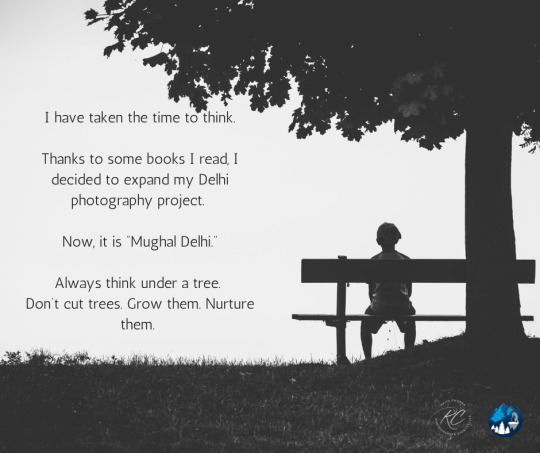
I have been thinking. Cogitation is a good word. Based on all the stuff I read recently, including a book by @mukhoty, I will now expand my Delhi photography project. The earlier focus was Shahjahanabad. Now, it will be Mughal Delhi.
Read her book, "Daughters of The Sun."
You must recognize people like Bega Begum, Hamida Begum, Jahanara, Dara Shikoh, Zeb-un-Nisa.
#photography #projects #delhi
0 notes
Text
Mughal Women
Ok while I was scrolling through tumblr today on women’s history, one thing struck me odd - there wasn’t a single post regarding the women of one of the richest, most powerful empires in the history of the world. So here’s to you ladies - icons, role models and most of all - badass queens.
1. Isaan Daulat (lit. Good fortune) : Grandmother of Zahiruddin Khan or as he is famous, Babur, the founder of the Mughal dynasty, Isaan Daulat regularly advised her son on statecraft and warfare, and carried out most of his diplomatic missions. According to a source, Isaan Daulat’s husband was once killed in a war against the Shah of Persia. The Shah thereafter proceeded to “gift” Isaan Daulat to one of his generals. However, the same night, Isaan Daulat had her retinue murder him in the courtyard, “while she sipped wine reclining in the moonlight courtyard” as a witness claimed. When the Shah arrived, he questioned her about this action, to which she replied, “Islam gives me a right as a widow to marry by my convenience. You just handed me to him like cattle, and therefore his killing is perfectly justified by Islamic Sharia. You should consider yourself lucky.” The Shah of Persia then sent back Isaan Daulat with the wealth and assets he gained from that war, and declared her and her lineage as his sister and nephews. This later helped to back the Mughals’ legitimacy. Sadly, Isaan Daulat could never enjoy the land her descendants called home.
2. Gulbadan (lit. she with a rose like body) : Gulbadan was Babur’s eldest daughter, and was quite adventurous. She had famously chronicled the lives of her father and her brother Humayun, the second Mughal emperor. She looked after administration while her brother fled from place to place. She had also embarked on a seven-year voyage to Mecca and Medina for The Hajj, encountering the malicious Portuguese (she had to bribe them with a fricking town for guarantee of safe passage), pirates, kings, sufis and many more, and was thus also called Hajji Begum. She held a special place in Akbar’s zenana as his aunt.
3. Hamida Banu : Princess of Sindh, she was married off at the age of 15 to a much older Humayun at the age of 15. She had accompanied Humayun in all his wars and also on his journey to Persia, for asking the Safavid Shahs to help them recapture Hindustan. She was Akbar’s mother.
4. Maham Anagah and Jiji Anagah : Akbar’s wet nurses, they had raised up Akbar while his parents tried to win their empire back. Maham Anagah was Akbar’s chief advisor and head of his zenana, before a failed coup by his son, after which he was killed and later on she was relieved of her post, despite still holding Akbar’s favour. Jiji Anagah’s children extensively married into the Mughal family, and her husband Mirza Aziz Koka was Akbar’s head of finance. Her family, wealth and power grew so much, as the Emperor’s favourites, that they were collectively known as the Atka Khail.
5. Ruqaiyya Begum : Akbar’s first cousin, and also his first wife, Ruqaiyya Begum was Akbar’s chief queen and Padshah Begum of the zenana. Though she remained childless, she reigned supreme in the zenana and commanded her husband’s respect in a society where a woman’s existence was through her children. She was the main force behind Noor Jahan and Jahangir’s wedding, and was also the person who raised Shah Jahan.
6. Salima Sultana Begum : Wife of Akbar’s general Bairam Khan, she was later married to Akbar after Bairam Khan’s assassination. Her son Abdur Rahim was later made Khan-i-Khanan or Commander of the Mughal Army. She was the one who had brought up Jahangir, and thus he was also called Salim. An erudite scholar, she managed Akbar’s library along with her own private collection, commissioning new works and translations of others. She later protected Jahangir from Akbar’s wrath after Jahangir had him poisoned in a bid for the throne.
7. Harkha Bai : Bollywood knows her as Jodhaa, while history knows her as Maryam-uz-Zamani, Harkha Bai was the Rajput Princess of Amer and the daughter of Raja Bharmal. She was married to Akbar as part of a political alliance, and later became Jahangir’s mother. She was the richest woman of her time, her wealth being more than Akbar’s, and she also had one of the most valuable lands (jagirs). There are 2 famous anecdotes on her -
Once, an English merchant had bought her indigo farms at Bayana, Rajasthan. When she got to know of this, she practically destroyed that merchant, bought back that farm, and later had it burnt.
Another time, the Portuguese had captured and set fire to her ship the Rahimi, one of the largest and finest ships in that time, in a last bid to maintain their hold in India and the Arabian Sea against the increasingly powerful English. In retaliation, Jodhaa had all of their ships burnt, snatched their powers and wealth, and basically made paupers out of them. She died as the richest woman in Mughal history, before Noor Jahan.
8. Anarkali : A courtesan, with whom Jahangir (then Prince Salim) fell madly in love, many historians now consider the very real possibility that she never existed and was instead “invented” by the Mughal family as someone to blame for the tension between Akbar and Jahangir. According to the folklore, Akbar didn’t approve of Salim and Anarkali’s relation, and after she and Salim refused to end things, he had her entombed alive in a wall.
9. Maan Bai : Harkha Bai’s niece, she was Jahangir’s first wife. She later committed suicide by an overdose of opium when Jahangir had her son Khusrau blinded and imprisoned in a bitter war of succession. Her brother Man Singh was one of the Nine Gems (navaratna) of Akbar’s court, and had defeated Rana Pratap in the famous Battle of Haldighati.
10. Jagat Gosini : Princess of Jodhpur, she was the Padshah Begum of Jahangir’s zenana before Noor Jahan, and also the mother of Shah Jahan. She was the biggest obstruction in Noor Jahan’s historic rise to power. She was not on good terms with then Dowager Empress Ruqaiyya Begum (see above) and hence, Ruqaiyya Begum demanded that Shah Jahan be handed over to her so that she could raise him up, and also helped Noor Jahan against her. A local folklore also suggests that she had been the one behind the miscarriage of Noor Jahan after she had come into the zenana. She faded after Noor Jahan’s rise, but still held respect and power.
11. Noor Jahan (lit. Light of the World): The most famous and powerful woman in the history of the Mughals, Noor Jahan was born as Mehr-un-Nisa (lit. Sun amongst Women) to Persian immigrant parents. Brought up in Agra alongside Akbar’s court, Noor Jahan was an intelligent woman full of talent and potential. She was married off at 19 to Sher Afghan, a commander in Akbar’s army. The marriage was a failure, and moreover Noor Jahan suffered through 8 miscarriages with him, before the birth of her daughter, Ladli (lit. Darling or Beloved). After her husband was murdered in a coup, Ruqaiyya brought her to the Imperial Palace as part of her retinue, and later helped her and Jahangir get married, with she being Jahangir’s twentieth and final wife. Her rise to power was quick, owing to her own ambition and intellect, and some help from her father Itimad-ad-Daulah (Royal Treasurer of the Mughals), brother Asaf Khan (a prominent minister in Jahangir’s court) and Ruqaiyya Begum. Her seal as the Padshah Begum became second only to that of Jahangir, and later even surpassed his own. She brought great innovations to fashion, cosmetics, administration, architecture and gardening, city planning, and many more. She was the one who had arranged the marriage between her niece Arjumand Banu and Shah Jahan. Her marriage with Jahangir was a success – both of them were tempestuous and cared and loved each other deeply. Later, as Jahangir’s health started failing due to asthma and alcoholism, she took over the reigns and took the Mughal empire to great heights. The first British ambassador, Sir Thomas Roe, arrived in her time. However, she gave the British no rights or privileges till the Rahimi incident, and extracted a great many gifts from him, including a carriage made entirely of silver. She had designed her parents’ tomb near the Yamuna river in Agra (it was later copied by Shah Jahan), and she also designed Jahangir’s tomb in Lahore (modern day Punjab, Pakistan). She had tried to get Shah Jahan to marry her own daughter, but he refused and so she completely withdrew her support from making him the emperor, and instead opposed him. Shah Jahan thus had to flee to Burhanpur, with his eldest children Dara Shukoh, Jahanara, Aurangzeb and Roshanara in Noor Jahan’s custody. Later, he waged war against Noor Jahan with help from her brother Asaf Khan. Noor Jahan was ultimately defeated in Kashmir. She was deprived of her wealth, status and power and exiled to Lahore with her daughter and granddaughter. Her influence still remained, with Shah Jahan keeping her legacy alive by copying the Taj Mahal from the tomb she designed for her parents.
12. Mumtaz Mahal : Born as Arjumand Banu, she was Noor Jahan’s niece and Shah Jahan’s most beloved. She died in childbirth while giving birth to her fourteenth child – a girl called Gauhar.
13. Jahanara : Eldest daughter of Shah Jahan, she was the one who headed the empire after Shah Jahan was left heartbroken following Mumtaz’s death, and became active in the construction of the Taj Mahal. Noor Jahan is often described as being fond of her, taking care of her education personally. She was known as Padshah Mallika, and her flower-shaped seal was the most powerful. She was an accomplished dancer, poet and a patron of the arts. She conducted the most expensive wedding ever, between her brother Dara Shukoh and Nadira Banu Begum, valued at 2 lakh rupees then, approximately 2 billion USD in today’s time. She supported Dara Shukoh in his bid to become emperor. Later, she was imprisoned by Aurangzeb after he imprisoned Shah Jahan and killed all his remaining brothers.
14. Roshanara : Shah Jahan’s younger daughter, she was also an accomplished poet, but always at loggerheads with Jahanara. She later supported Aurangzeb as emperor.
15. Dilras Banu Begum : Aurangzeb’s first wife and Padshah Begum of his zenana, Dilras Banu belonged to the Safavid dynasty of Persia. She was mother of all of Aurangzeb’s children. However, she died an year before Aurangzeb’s succession. The Bibi ka Maqbara (Tomb of the Lady) in Aurangabad, which bears a striking resemblance to the Taj Mahal, was constructed by Aurangzeb in her honour.
16. Zeenat-un-Nisa : Aurangzeb’s eldest daughter, she was the Padshah Mallika after her mother’s death. She survived Aurangzeb by a great many years, and was respected by his successors as a remnant of a magnificent past. She was known for her charity, and was buried in the Zeenat-ul-Masjid built by her in Dlehi.
17. Zeb-un-Nisa : Aurangzeb’s favourite daughter, Zeb-un-Nisa was the most accomplished poet in Mughal history, with her works still surviving and enjoyed. She was an atheist, but later converted to Sufism. She led a secret society, and lead a rebellion against the oppressive and harsh rule of her father. She was subsequently imprisoned by Aurangzeb, where she died. She was buried in the Tees Hazari Bagh (Garden of 30,000 Trees) near the Kashmiri Darwaza (Kashmir Gate) in North Delhi. Her tomb was later shifted at Akbar’s Mausoleum in Sikandra, Agra when Delhi was expanded following Independence.
Well people, this has been an informative post. You’re welcome.
Sources : Daughters of the Sun by Ira Mukhoty, Empress : the Astonishing reign of Noor Jahan by Ruby Lal.
#india#indian history#history#world history#women's history#women in history#badass women#women#royal women#royalty#mughal#mughals#the mughals#mughal women#noor jahan#jodhaa bai#jodhaa#zeb un nisa#zebunnisa#jahanara#taj mahal#mumtaz mahal#akbar#shah jahan#jahangir#aurangzeb
109 notes
·
View notes
Note
hello do you know the poem 'perhaps the world ends here' bc i think you'll really like it (and not just bc it keeps referencing kitchens)
I hadn't but I just looked it up!
"perhaps the world will end at the kitchen table, while we are laughing and crying, eating of the last sweet bite."

#when i articulate my thoughts and emotions about houses and rooms as vessels of human emotion and existence........#answered ask#zeb-un-nisa
23 notes
·
View notes
Text
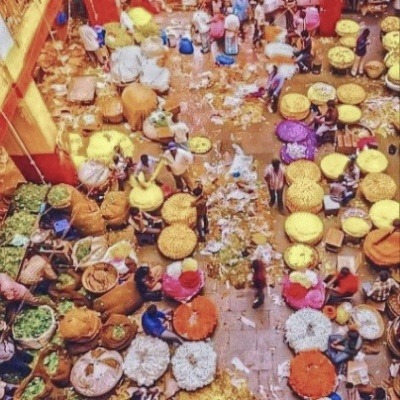
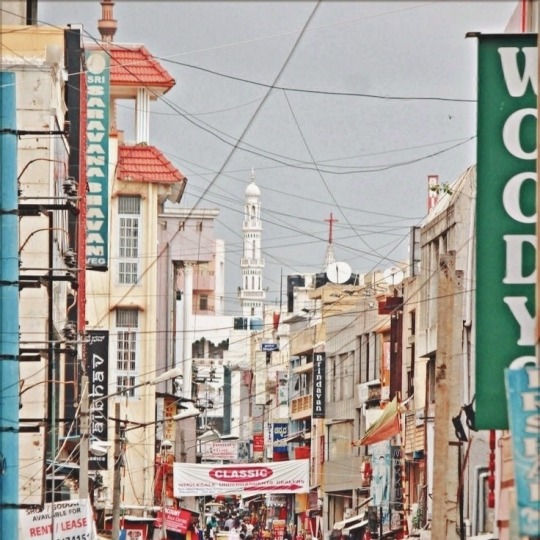
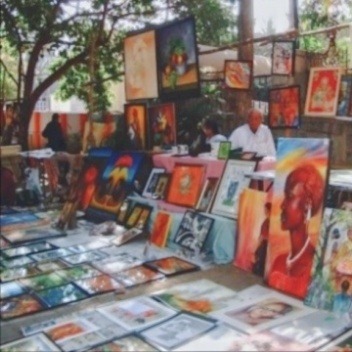
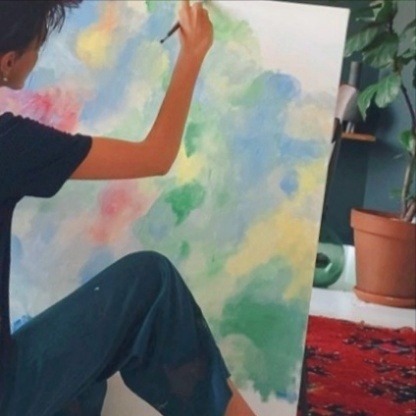

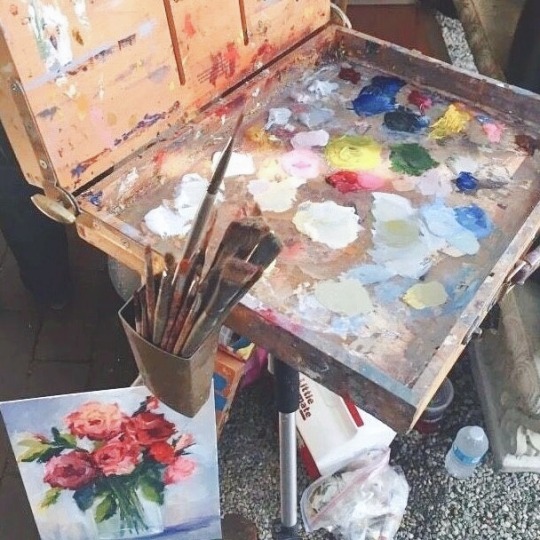
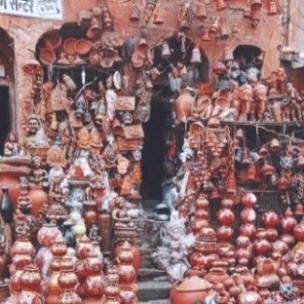
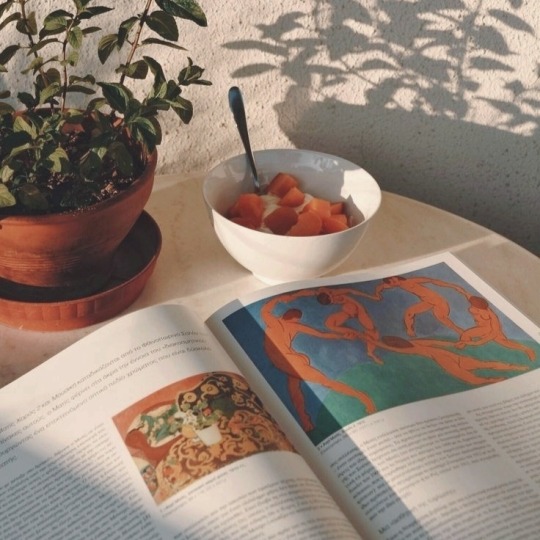
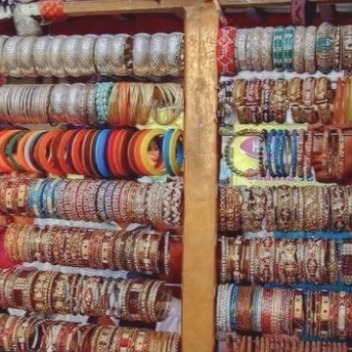
Bangalore art student aesthetic for @zeb-un-nisa
#idk if i like this or not#but oh well#gimme ideas#need ideas#dark academia#moodboard#academia aesthetic#desi dark academia#desi core#desi aesthetic#desi academia#bangalore#bangaluru#indian aesthetic#indian academia#indian dark academia#academic#artsy#artist#art student#art school#dark academia aesthetic#dark academia moodboard#dark+academia+moodboard#light academia#desi cottage core#cottage core aesthetic#cottage core#cottage academia#mine: moodboards
533 notes
·
View notes
Text
announcement time!!!!
i’m changing my url to shaharizade, yes, as in the arabian nights woman. it felt better. so yeah
if anybody wants to take zeb-un-nisa, go ahead!!!
to sum up;
@/zeb-un-nisa --> @/shaharizade
okay so now i’m now gonna tag people
@vintage-lattes @wisteriaetc @willkillforgoodmemories @randomreader14 @random-fandom-rambler @desi-dark-academia @chaandajaan @naadan-academia @atopatrain @watchingsunsets
#weeeep#i wanted sheherazade or scheherazade#but those were taken by bots ://#im still gonna check up on them everyday to see if they deleted their accs tho :))
29 notes
·
View notes
Text
2021 Reading List Tag!
Thank you for the tag @small-french-studyblr! As I started reading a lot more in 2020, I am very excited about this year!
Currently Reading
History of Western Philosophy - Bertrand Russel
Stories of Law and How It’s Broken - The Secret Barrister
Art History - Marilyn Stokstad
TBR
Wuthering Heights - Emily Brontë
1984 - George Orwell
The Greek Myths - Robert Graves
The Bell Jar - Sylvia Plath
I nominate (if they already haven’t done it) @therepublicofletters @zeb-un-nisa @gaaaandaaaalf @chaandajaan
Happy readings for the new year!
7 notes
·
View notes
Text
I was tagged @desi-student (tyy btw)
Rule: Bold your traits
My personality: I'm loud. I'm obnoxious. I'm sarcastic. I'm cocky. I cry easily. I have a bad temper. For the most part I don't like people. I'm easy to get along with (I am very socially awkward). I have more enemies than friends. I've smoked. I've smoked weed. I drink coffee. I clean my room daily.
My appearance: I wear makeup. I wear jewellery. I wear contacts. I wear glasses. I have braces. I color my hair regularly. I straighten my hair often. I have a piercing. I have earrings. I have a tattoo. I have small feet.
Relationships: I'm in a relationship now. I'm single. I'm crushin. I've missed an ex before. I'm always scared of being hurt. An ex has abused me at least once. I've been in love more than two times. I believe in love at first sight. I believe lust is more important than love.
Friendships: I have a best friend. I have at least ten friends. I've gotten a phone call in the last 48 hours from a friend. I've beaten up a friend. I've been in a serious fight with a friend. I can trust at least five people with my life.
Experiences: I've been on a plane. I've been on a train. Someone close to me has died. I've taken a taxi. I've taken a city bus. I've taken a school bus. I've gone bungee jumping. I've made a speech. I've been in some sort of club. I've won an award. I've spent 24 hours on the computer straight. I've been in a physical fight.
Television: I spend at least six hours a day watching television. I watch soap operas daily. I'm in love with Days Of Our Lives. I've seen and liked the O.C. I've seen and liked One Tree Hill. I've seen and like America's Next Top Model. I've seen and like Popular. I've seen and like 24. I've seen and liked CSI. I've seen and like Everwood.
Family Life: I get along with both of my parents. My biological parents are still together. I have at least one brother. I have at least one sister. I have at least one step brother/sister. I have at least one half brother/sister. I've been kicked out of the house (only for a few minutes as punishments when I was a kid). I've ran away from my home. I've sworn at my parents. I've made my parents cry. I've lied to my parents. I've lied to my parents about where I am. I've lied to my parents about what I'm doing. I've lied to my parents so I'd be allowed out. I've walked out when I've been grounded.
Hair: I've been brown. I've had streaks. I've cut my hair in the past year. I've dyed my hair in the past year. I've been blonde. I've been black (naturally). I've been red. I've been light brown. I've been medium brown. I've been blue/green. I've gotten my hair thinned. I use conditioner. I've used silk therapy. I've used hot oil treatments. I've curled my hair. I've straightened my hair. I've braided my hair. I've ironed my hair.
I've had an in-school suspension, I've been sent to the principals office. I've walked out of class. I've skipped an entire day of school. I've skipped a whole month of one certain class. I've failed a test. I've cheated on a test. I've helped someone else cheat on a test. I've failed Art. Ive failed P.E. I've failed Math. I've failed Science. I've failed another class. A teacher has called my parents.
welll this was fun.
tagging @zeb-un-nisa and @sunlit-cashmere <3
4 notes
·
View notes
Text
i’ve been tagged by @gwndlnstudies, @sadcypher and @student-by-day to do this tag game ^^ thank you!
*rules are to tag people you want to get to know better or just to check in with people*
last song: Lo Vas A Olvidar - Billie Eilish, ROSALIA
last movie: Wonder Woman 1984
currently watching: Suits (binge time to escape from exams yay)
currently reading: Devdas - Chattopadhyay Sarat Chandra
im tagging : @coff-chee @zeb-un-nisa @chaandajaan @willkillforgoodmemories ^^
3 notes
·
View notes
Text
Zeb-un-Nisa, Aurangzeb’s eldest daughter, is born in Daulatabad in 1638 when Aurangzeb is governor of the Deccan. While Daulatabad fort dominates the horizon from a hilltop, Aurangzeb is building a new capital at Khadki town, stronghold of Jahangir’s old nemesis, Malik Ambar the ‘rebel of black fortune’. Malik Ambar is now long dead, having never allowed the Mughals to claim the Deccan while he lived. Zeb-un-Nisa, daughter of the Persian noblewoman Dilras Banu Begum, grows up in this provincial capital, far from the intrigues of the Mughal court. In the Deccan, the supremacy of her father is unchallenged and Zeb-un-Nisa is given a rigorous education under the supervision of Hafiza Mariam, a scholar from a Khurasani family. Zeb-un-Nisa is an excellent student and excels in the Arabic and Persian languages. Her father is so delighted when she recites the entire Quran from memory as a child that he gifts her 30,000 gold mohurs. In her erudition and her quick wit she is very like her aunt, Shahzaadi Jahanara, whom her father respects above all the other women of the court. When she is fifteen years old, she visits Shahjahanabad with Aurangzeb’s zenana as they return from the doomed Kandahar campaign. She is enchanted with the sparkling new city, the elegant women with their refined tehzeeb, their every gesture studied and full of grace. In the travelling court of her father, in these wildering years, it is a more pragmatic and pared down zenana but in 1658, when Zeb-un-Nisa is twenty years old, Aurangzeb deposes Shah Jahan and his household moves to Shahjahanabad.
Dilras Banu Begum, the somewhat haughty senior wife of Aurangzeb, is now dead. Even Aurangzeb, when giving marital advice to a grandson, will later admit that ‘in the season of youth’, he ‘too had this relation with a wife who had extreme imperiousness’. Since the other wives of Aurangzeb have less illustrious backgrounds, the senior women of the royal zenana are Roshanara and her eldest niece, Zeb-un-Nisa.
For twenty years Zeb-un-Nisa will be one of the most influential women of the zenana at Shahjahanabad. Her particular area of interest is poetry and literature. She collects valuable manuscripts and books and her library is one of the most extensive in the country. When Aurangzeb begins to retrench imperial patronage towards music and poetry, it is the royal women, the shahzaadas, the noblemen and then, later still, the wealthy middle class of Shahjahanabad who will continue the patronage of the arts. The governor of Shahjahanabad, Aqil Khan, is himself a poet and writes under the pen name Razi. Indeed, despite Aurangzeb’s later disfavour, Shahjahanabad fairly pulses with music. It tumbles from the kothis of the courtesans, the women thoroughly trained singers themselves, who bring Delhi Qawwali singing to mainstream attention. It vaults out of the large mansions of the newly wealthy, who prefer the lighter Khayaal and Thumri styles. In the gloaming of a tropical evening, it throbs out of the immense havelis of the princes and the noblemen, in the tenuous hold that Dhrupad still has amongst the elite of the Mughal court. And the poets keep gathering at Shahjahanabad, despite Aurangzeb’s dismissal of them as ‘idle flatterers’. They come from very far, like Abd-al-Qader Bidel, whose family is Chagatai Turkic but whose poetry so defines a phase of Shahjahanabadi poetry that he becomes Abd-al-Qader Dehlvi. Some will come from the Deccan, like Wali Dakhni, and some are born in the narrow, winding galis (lanes) of Shahjahanabad itself. They will write in Persian, in Urdu, in Braj and later in Rekhti. They will write in obscure philosophical quatrains, in flamboyant ghazals or in erotic riti styles but many will glow with the high-voltage mysticism of Sufi thought, for the ghosts of Shahjahanabad’s Sufi saints will enchant all the poets of the city.
Zeb-un-Nisa, like Jahanara who returns to court as padshah begum in 1666, is instrumental in supporting the work of writers and poets through her patronage. She supports the scholar Mulla Safiuddin Adbeli when he translates the Arabic Tafsir-i-Kabir (Great Commentary) into Persian and he dedicates the book to the shahzaadi—Zeb-ut-Tafasir. She also sponsors the Hajj pilgrimage of Muhammad Safi Qazwini. Qazwini will write an extraordinary account of his voyage, the Pilgrims’ Confidant, unique in its genre and magnificently illustrated and will dedicate it to Zeb-un-Nisa. For a few years, the courts of Jahanara and Zeb-un-Nisa will nurture this eclectic maelstrom of a culture, which has much more in common with Babur and Humayun’s camaraderie of artists than it has with Aurangzeb’s increasingly austere one. When Aurangzeb bans opium and alcohol, the easy complicity that the noblemen and padshahs shared in the ghusal khaana or the Deewan-e-khaas while drinking wine, is now forbidden. The imperial women, however, continue to drink wine, often made from grapes in their own gardens, flavoured with spices.
In 1669, Zeb-un-Nisa attends the lavish marriage ceremony of her cousin, Jaani Begum, to her brother, Muhammad Azam, at the haveli of Jahanara. There will be other weddings too: her sister Zubdat-un-Nisa will marry Dara Shikoh’s youngest son Siphir Shikoh and Mehr-un-Nisa will marry Murad Baksh’s son Izad Baksh. But for Aurangzeb’s oldest daughters, there are no more cousins to marry. There is an understanding, also, that these oldest daughters, like their aunts, possess a powerful charisma as Timurid shahzaadis and must be kept within the controlling orbit of the imperial zenana. The decades pass and still Aurangzeb rules, as resolute and restless as a young man. His sons, meanwhile, are growing old and impatient. Muhammad Akbar is Zeb-un-Nisa’s youngest brother and she is particularly close to him, as their mother Dilras Banu died soon after giving birth to him, when Zeb-un-Nisa was nineteen. The other sons are middle-aged men, and there have been skirmishes, the shahzaadas jostling for power, always subdued immediately by their unforgiving father. In 1681, when Muhammad Akbar decides to challenge his father, with the support of a Rajput alliance including the Rathors of Jodhpur, Zeb-un-Nisa is in a particularly vulnerable position.
In 1681, Jahanara dies. The imperial zenana has glowed with her ambition and talent for more than half a century. If the shahzaadas are uncertain about the future leadership of the Mughal empire, then the stakes are almost as high in the imperial zenana. Zeb-un-Nisa believes she may become the next padshah begum. She is a woman of letters, like Jahanara, with the same Sufi inclinations too. She is the eldest of the Timurid shahzaadis and presides over an astonishingly talented salon. It is time, surely, for a shahzaada to ascend the Peacock Throne as Aurangzeb is already an old man, sixty-three years old. So Zeb-un-Nisa sides with the young prince Muhammad Akbar, hoping to ensure her legacy in the next court.
But Aurangzeb is able to defeat Muhammad Akbar, using a mixture of duplicity and treachery. In the process, he discovers letters which incriminate Zeb-un-Nisa, demonstrating her ardent support for her brother. ‘What belongs to you is as good as mine,’ Muhammad Akbar writes in a letter to Zeb-un-Nisa, ‘and whatever I own is at your disposal.’ And in another letter he writes: ‘The dismissal or appointment of the sons-in-law of Daulat and Sagar Mal is at your discretion. I have dismissed them at your bidding. I consider your orders in all affairs as sacred like the Quran and Traditions of the Prophet, and obedience to them is proper.’ Muhammad Akbar is exiled to Persia, and Zeb-un-Nisa is imprisoned at the Salimgarh fort in Delhi. Her pension of four lakhs rupees a year is discontinued and her property is seized.
Very soon after this rebellion, Aurangzeb leaves Shahjahanabad for the Deccan with an entourage of tens of thousands, all of his sons and his zenana. He will never return to Shahjahanabad, which will slowly be leached of all of its nobility, craftsmen, soldiers and traders. Zeb-un-Nisa will live more than twenty years imprisoned in Salimgarh fort. She will grow old here as Shahjahanabad empties of its people and becomes a shadow of its former self. But the poets and the singers do not desert Shahjahanabad, their fortunes and their hearts are too inextricably linked to the great city, to this paradise on earth. Other patrons take over the role of the nobility, humbler people, so that a critical poet will later write:
Those who once rode elephants now go barefooted; (while) those who longed for parched grains once are today owners of property mansions, elephants and banners, (and now) the rank of the lions has gone to the jackals.
Not only do the poets remain but their poetry becomes saturated with the haunted longing and nostalgia which becomes the calling card of all the great poets of Delhi. This city of beauty and splendour, abandoned and then desecrated, and then bloodied, will inspire reams of poetry on the twin themes of grief and remembrance. In the future, one of these poets will court eternity when he writes:
Dil ki basti bhi Sheher Dilli hai;
Jo bhi guzra usi ne loota
As for Zeb-un-Nisa, she waits for Muhammad Akbar to claim the Peacock Throne but he dies, in 1703, outlived by his father. From her lonely prison on the Yamuna, the shahzaadi can see Shah Jahan’s magnificent fort. The Qila-e-Mubaarak remains locked up for decades and the dust and ghosts move in. The bats make their home in the crenelated awnings and sleep as the relentless sun arcs through the lattice windows. Bees cluster drunkenly around the fruit trees in the Hayat Baksh, the overripe fruit crushed on the marble walkways like blood. Moss skims over the canals and the pools, though the waterfall still whispers its secrets to itself in the teh khana (underground chamber) as Zeb-un-Nisa waits. Zeb-un-Nisa writes poetry while she waits for a deliverance that will never come. She is a poet of some repute, and writes under the pseudonym Makhvi, the Concealed One. This is a popular pseudonym, however, and it is difficult to establish which lines are truly written by the shahzaadi but it is likely that the following wistful and delicate lines are hers, written in the grim solitude of Salimgarh fort:
Were an artist to choose me for his model—
How could he draw the form of a sigh?
She dies in 1702, unforgiven by Aurangzeb, and is buried in the Tees Hazari Garden, gifted to her by Jahanara.
- Ira Mukhoty, “Daughters of the Sun: Empresses, Queens and Begums of the Mughal Empire”
#history#historicwomendaily#indian history#india tag#mughal empire#mughal era#Zeb-un-Nissa#mine#queue
11 notes
·
View notes
Text
5 best places to visit Lahore at night
Lahore is the city which is favorite for its night's life. Even though you don't find any nightclubs or discos, you can find plenty of cafes, restaurants, and movie theatres throughout the town or you find few escort agencies in Lahore for nightlife enjoyment in Lahore, You can visit this website for booking. If you want to find out the best places to visit at night in Lahore, then you need to keep reading the following post.
Unlike the western country, the culture in Pakistan is unique. It represents the original beauty of Pakistan's architecture with all the latest elements in order to create an alluring agenda of things. In this post, you can find the unexplored treasures of the city to make your trip mind-blowing.
Lahore Fort:
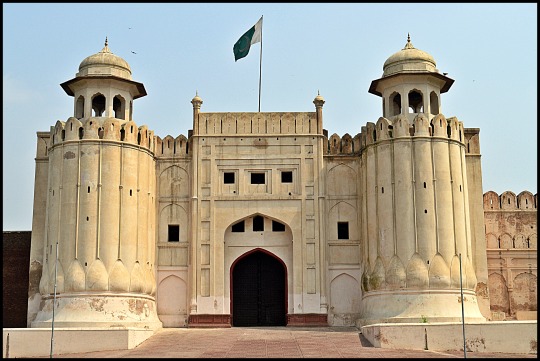
Lahore Fort is one of the best places to visit at night. The garden and the lightings in this place make it look splendid with a historic site of more than 49 acres. This place is also known as Shahi Qila in Urdu. It is also the first place to visit first as the tourist spot for foreigners, school trips, or colleges. Lahore Fort is originally built by Akbar who is the Mughal Emperor and the architecture of the sprawling estate reflects the many rulers it has had over the time.
Fort Road Food Street:
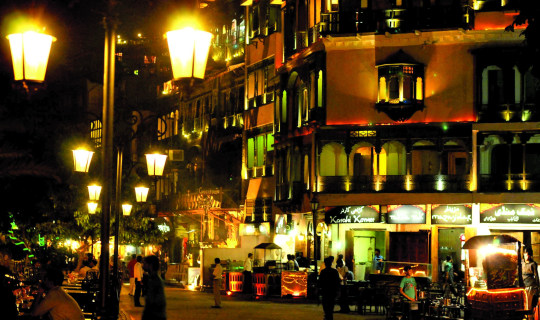
This street is surrounded by centuries of old buildings which are situated in the Heera Mandi neighborhood. This is one of the favorite sport for hungry tourists who come and stay very late at night in the city. The unique light shadows of these buildings give the street a pleasant view. You can find all the famous and variety of dishes starting from very traditional Phajje Ke Paaye to the western street food which caters to your taste buds. This place is perfect for taking selfies with your friends or family.
Chauburji:
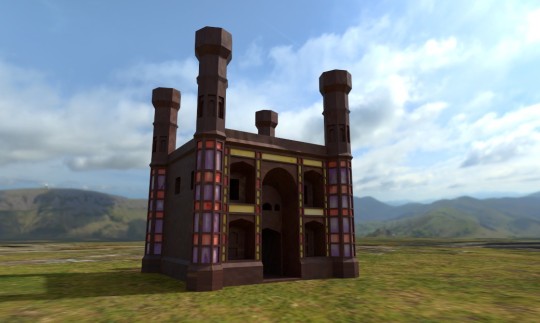
Chauburji represents the old Mughal architecture with strong blend walls. Chauburji is an Urdu name which means four towers. The construction of this is ascribed to the Mughal Princess named Zeb-un-Nisa. It has a much larger garden complex, where you can sit in the middle of a crowded and noisy intersection to view the beauty of ancient architecture and enjoy the nightfall surrounding the people. In the modern days, this ancient architecture stands for an era of majesty and opulence.
Daata Durbar:
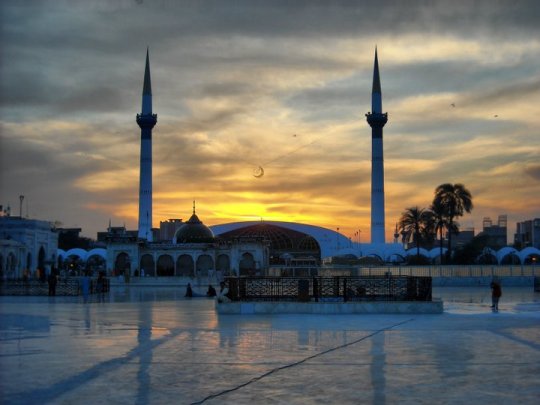
In the region of South Asia, Daata Durbar is one of the oldest Muslim shrines which houses the Sufi saint Abul Hassan Ali Hajveri's. People who look for the blessings and the followers of the great saints are seen at all times of day and night here. The night view of the Daata Durbar is apparently beautiful with a large crowd of worshippers. It is also known that the langar here tastes especially good.
Masjid Wazir Khan:
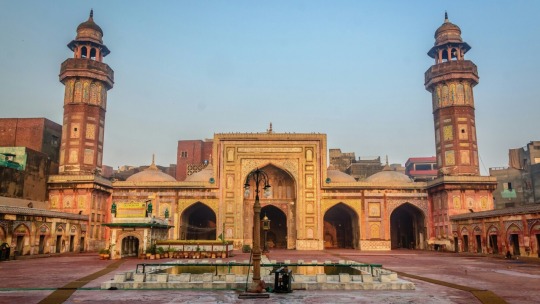
Masjid Wazir Khan mosque which is sometimes represented as the mole on the cheek of Lahore as it is being a sort of beauty mark to the city. Because of its intricate tile work, this place looks exceptionally wonderful and it was built during the time of the Mughal Emperor Shah Jehan. The mosque looks best when visited at dawn. When you visit this place you also need to have a look around its surrounding area as you can find many interesting things.
These are the five top places which you definitely need to visit Lahore city at night. If you are still looking for music and alcoholic beverages, then you can find it in the underground music parties where you will get to enjoy western music too along with the beers and drinks. Visiting Lahore will give you the best experience you have ever had in your life.
4 notes
·
View notes
Note
hello i started tsh bc you wouldnt shut up about it <3
"you wouldn't shut up about it" isn't a nice way to describe when someone loves something and is happy to talk about it <3
9 notes
·
View notes
Note
what does your username mean? i love your page its so pretty <33
jhfdsjhsfdhj, first, thank you i’m really good at hitting reblog!!
zeb un nissa (or zebunnissa or zaib-un-nisa) means “ornament of womankind” and is the name of this mughal princess i really like! she was the daughter of aurangzeb and dilras banu begum. she was like super cool, she memorised the entirety of the quran at the age of seven, and at twenty one she was one of aurangzeb’s advisors! she was also adept at urdu, persian, arabian, astrology, philosophy, calligraphy and so much more. she was also a poet and has several published works under the pen name makhfi. i’m not, unfortunately, a master at her life, so you can google her if you find her more interesting or check her wikipedia page.
as for why that’s my username, a. i think she’s very cool and b. my name’s pretty close somewhere in that area so that kinda adds up?
4 notes
·
View notes
Text
Daughters of the Sun - Book Preview
Daughters of the Sun - Book Preview #goodreads #bookworm #bookrecommendation
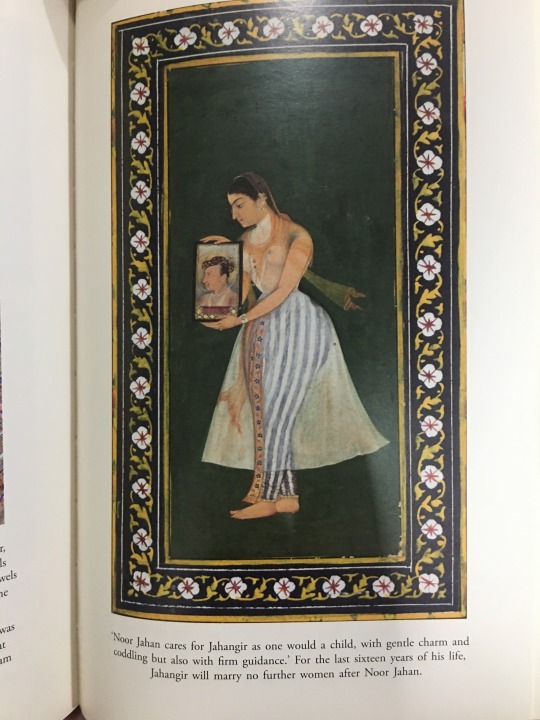
Were an artist to choose me for his model, how could he draw the form of a sigh?
Zeb-un-Nisa, Daughters of the Sun by Ira Mukhoty
Revelations
Up until three days before I started reading this book, I was not even aware of its existence. Upon being exposed to its legitimacy, my initial resistence towards it was attributed to having already explored the Mughal history in detail previously.…
View On WordPress
0 notes